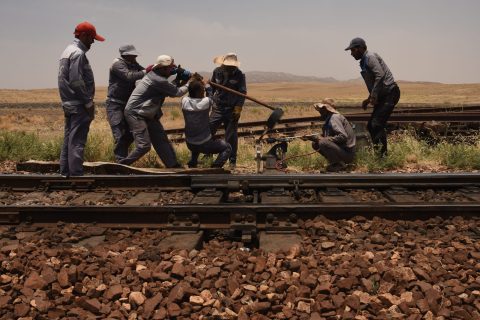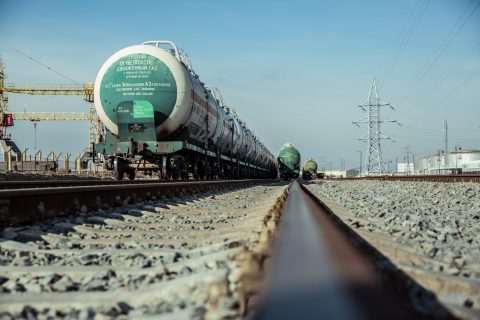RailFreight Summit Special Edition: these are the main takeaways

The RailFreight Summit Special Edition hosted in Brussels last Wednesday, 6 April, provided much room for fruitful discussions and insights on the disrupted New Silk Road. The one-day event included some important news that we highlight in this article.
The impact of sanctions on rail freight businesses and the Middle Corridor as an alternative to the main route through Russia occupied most of the knowledge exchange. On top of that, the speakers dived into the topic of sanctions and how can companies be adequately informed and prepared to avoid any issues with the law.
Additionally, they also looked into insurance coverage for New Silk Road rail services, with this field remaining quite complex since insurers are not willing to cover the whole route due to the existing and potential war zones. Yet there were some concrete updates on new sanctions, how the EU aims to support impacted companies and what developments we should expect on the Middle Corridor.
Sanctions and Ukraine
Regarding sanctions and rail connectivity with Ukraine, there are three main pillars to focus on:
- The fifth package of EU sanctions on Russia and Belarus is here. The transport sector (road and sea) is directly impacted, but rail is excluded. Russian Railways remain on the list of financially sanctioned companies.
- The EU will apply state aid funding to the Member States to compensate businesses experiencing financial losses due to the sanctions. Rail freight companies can also benefit.
- The EU has the development of rail freight links with Ukraine on a top-priority list.
Middle Corridor
Regarding the Middle Corridor, the countries involved in it take decisive steps to facilitate traffic:
- The establishment of a joint venture between the national railway companies of Turkey, Georgia, Azerbaijan and Kazakhstan is confirmed. The market should expect it in the first half of 2023.
- Six vessels will operate in the Caspian Sea starting in September. The number will double the current capacity of the corridor’s sea link.
Also read:
You just read one of our premium articles free of charge
Want full access? Take advantage of our exclusive offer




